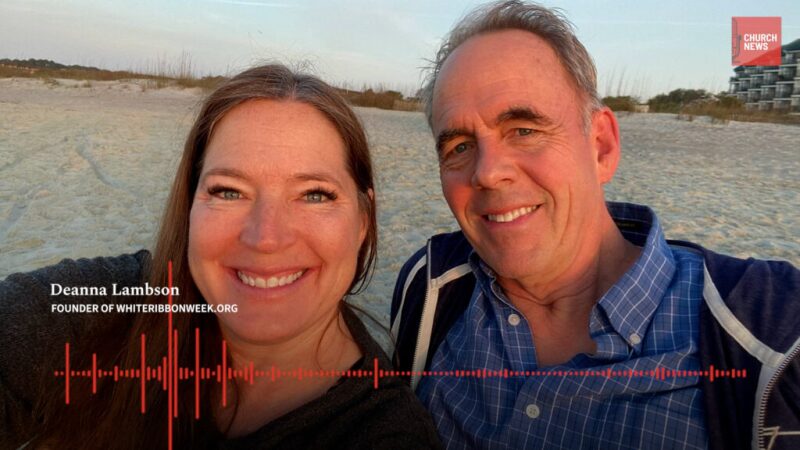Deanna Lambson is a Latter-day Saint fulfilling the old adage to “see a need, fill a need.” She is the founder of White Ribbon Week programs which work to “build confident and resilient children who make conscious, positive choices in media and technology.” This week on the Church News podcast, Lambson is sharing important principles families can use to keep their children safe from pornography, cyberbullying, and other online threats.
Lambson’s passion for online safety stemmed from wanting to be a more proactive mother to her five sons and one daughter.
“I remember [asking] someone if they were worried about their kids getting involved in pornography, and they said, ‘I guess I haven’t really thought about it, I hope that won’t be a problem.’ I remember being a little bit surprised by that response and thinking, ‘hoping that they won’t get into it is not enough,’” Lambson says.
After that conversation, she signed up to help with an Internet Safety Week at her local elementary school. Since then, her passion for healthy media use has grown into what Lambson describes as calling. On the Church News podcast, she shared several actionable suggestions for anyone with stewardship over children.
For example, Lambson says that the most important tool for online safety is to have frequent, healthy conversations with your kids. And the key to successful conversations? Listening rather than talking.

“Have you ever noticed that when you try to remember what was taught in Relief Society last week, [you] always remember the comment that [you] made, [and] I think it’s because when we share with someone else, it’s a little a-ha moment for ourselves,” she says. “This is not about us telling them what to do. It’s about empowering them to feel confident making decisions as they navigate life … Instead of thinking that our role is to talk and to teach, our role is to open the door for them to talk.”
Lambson offered several other suggestions for fostering healthy habits. The 10-minute rule teaches children that if they see something online that doesn’t seem right, they should tell someone within 10 minutes. Another idea is to remember the “Tic Tac Toe” strategy: if you see something uncomfortable online, turn it off, talk to an adult, and turn to something else.
“I believe in the power of families. I believe in the power of parents. And regardless of what influences our kids may come across in the world, parents are still the No. 1 influence on their kids, and you are doing a good job,” Lambson says. “Satan would want you to say there’s no hope, [but] that’s not a message from God … So choose to hope. Choose to believe and continue learning and know that the Lord has a plan.”
Listen to Lambson’s full conversation on the Church News podcast.
Visit WhiteRibbonWeek.org to find a series of six different family conversation guides and other resources.


